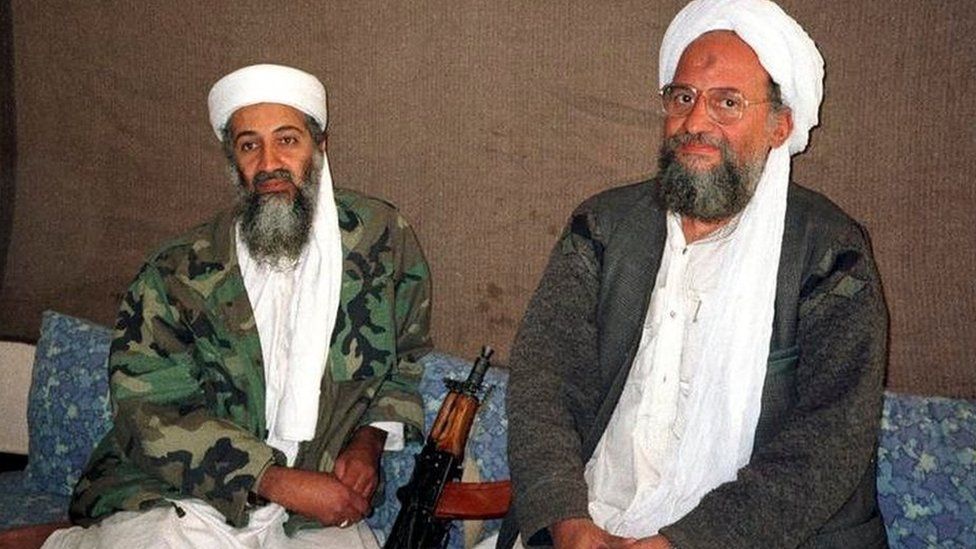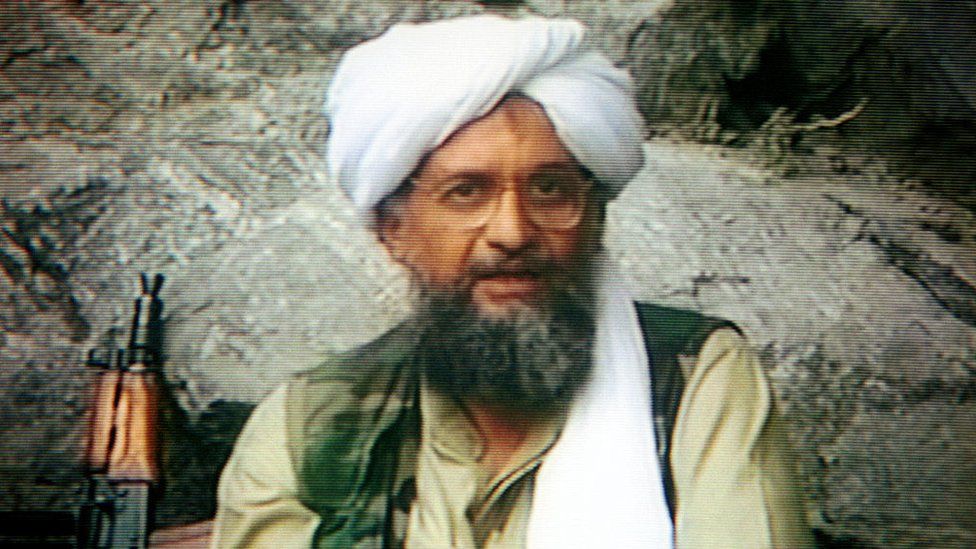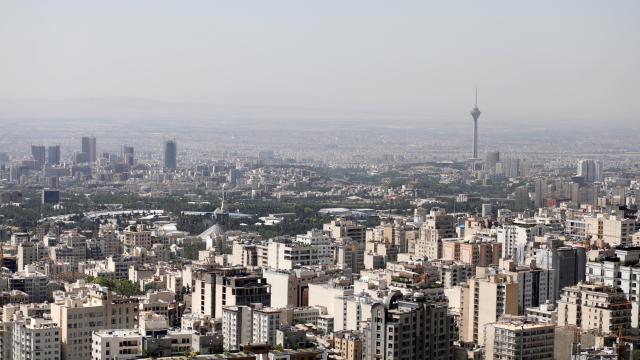The leader of al-ideology, Qaeda’s Ayman al-Zawahiri, was recently murdered by a US drone hit in Afghanistan.
He was an eye physician who assisted in the establishment of the violent Egyptian Islamic Jihad. After Osama Bin Laden was assassinated by US troops in May 2011, he assumed control of al-Qaeda.
Prior to then, Zawahiri was regarded as Bin Laden’s right-hand man and was seen by some analysts to be the “operational brains” behind the attacks on the United States on September 11, 2001.
Zawahiri was listed as one of the 22 “most wanted terrorists” by the US government in 2001 and had a $25 million (£16 million) bounty placed on his head. Only Bin Laden was higher on the list.
- Ayman al-Zawahiri, the head of Al-Qaeda, was assassinated in a US drone attack.
- Russia increases gas exports to China
- China’s UN envoy delivers a warning over a potential visit by Pelosi to Taiwan
- US death toll increases Kentucky floods, with rescue operations ongoing
Zawahiri became al-most Qaeda’s well-known spokesperson in the years following the attacks. He appeared in 16 films and audiotapes in 2007, which is four times as many as Bin Laden did, as the organization attempted to radicalize and recruit Muslims all over the world.
The US has already attempted to assassinate Zawahiri before his death in the incident that occurred in Kabul over the weekend.
He was the target of a US missile attack in January 2006 close to Pakistan’s Afghan border.
Four members of al-Qaeda were killed in the attack, but Zawahiri was alive and two weeks later, he appeared on video to warn US President George W Bush that neither he nor “all the powers on earth” could bring his death “one second closer.”
illustrious family
Zawahiri was born on June 19, 1951, in Cairo, the capital of Egypt, into a devout middle-class family that included physicians and academics.
One of his uncles served as the first secretary-general of the Arab League, while his grandfather, Rabia al-Zawahiri, served as the grand imam of al-Azhar, the primary institution of Sunni Islamic scholarship in the Middle East.
While still in school, Zawahiri became interested in political Islam. At the age of 15, he was detained for belonging to the Muslim Brotherhood, the oldest and largest Islamist group in Egypt.
He attended Cairo University’s medical school, where he graduated in 1974 and went on to get a master’s degree in surgery four years later, despite his political activity.
At the same university, his father Mohammed, who passed away in 1995, taught pharmacology.
young radicals
Zawahiri first carried on the family history by establishing a medical facility in a Cairo neighborhood, but he quickly found himself drawn to extremist Islamist movements that demanded the destruction of the Egyptian government.
He joined the Egyptian Islamic Jihad when it was established in 1973.
He was arrested in 1981 along with hundreds of other people who were thought to be part of the gang after three assassins masquerading as soldiers killed President Anwar Sadat in Cairo during a military parade. By striking a peace agreement with Israel and by rounding up hundreds of his detractors in an earlier security operation, Sadat had infuriated Islamist radicals.
Zawahiri emerged as a figurehead for the prisoners throughout the mass trial and was seen on camera addressing the judge: “We are Muslims who hold fast to our faith. In order to create an Islamic state and society, we are working.”

Despite being exonerated of involvement in Sadat’s murder, Zawahiri was found guilty of illegally possessing weapons and sentenced to three years in prison.
Zawahiri was allegedly often tortured and abused by the police while incarcerated in Egypt, an experience that is supposed to have turned him into a ferocious and violent extremist.
In 1985, after being freed, Zawahiri departed for Saudi Arabia.
Soon after, he traveled to Peshawar in Pakistan and eventually to neighboring Afghanistan. There, while working as a doctor there during the Soviet occupation, he founded a group of the Egyptian Islamic Jihad.
When Egyptian Islamic Jihad reemerged in 1993, Zawahiri assumed control of the organization. He was a main architect of the group’s attacks against Egyptian government officials, notably Prime Minister Atif Sidqi.
More than 1,200 Egyptians lost their lives as a result of the group’s drive to overthrow the government and establish an Islamic state in the nation in the middle of the 1990s.
He was identified by the US State Department in 1997 as the commander of the Islamic Jihad cell known as the Vanguards of Conquest, which is suspected of being responsible for the 1997 killing of Western tourists in Luxor.
He was found guilty of participating in the group’s numerous attacks two years later, and an Egyptian military court condemned him to death in absentia.
Western targets
During the 1990s, Zawahiri is said to have traveled the globe in quest of safety and cash.
He is thought to have resided in Bulgaria, Denmark, and Switzerland in the years after the Soviet Union left Afghanistan, and he occasionally traveled with a false passport to the Philippines, the Balkans, Austria, Yemen, Iraq, and Iran.
He reportedly spent six months in Russian detention in December 1996 after being apprehended in Chechnya without a proper visa.
The Arabic documents discovered on Zawahiri’s computer were not translated by the Russian authorities, and he was able to maintain his anonymity, according to an account purportedly authored by Zawahiri.
Zawahiri is thought to have relocated to Jalalabad, an Afghan city where Osama Bin Laden was stationed, in 1997.
The World Islamic Front for Jihad against Jews and Crusaders was established a year after Egyptian Islamic Jihad joined five other extreme Islamist terrorist organizations, including al-Qaeda and Bin Laden’s organization.
The initial declaration of the front was a fatwa, or religious decree, allowing the murder of US citizens. Six months later, 223 people were killed when two simultaneous bombings destroyed the US embassies in Kenya and Tanzania.
One of the individuals whose satellite telephone conversations were claimed as evidence that Bin Laden and al-Qaeda were responsible for the scheme was Zawahiri.
The US targeted the group’s training centers in Afghanistan two weeks after the assaults. The following day, Zawahiri called a Pakistani reporter and said: “Inform America that we are not alarmed by its bombs, threats, or aggressive behavior. The conflict has only started.”
Following the murder of Bin Laden, a series of Zawahiri’s lieutenants were killed by US airstrikes, which reduced his capacity for international coordination.
Additionally, Zawahiri had diminished in prominence over the past few years and had stopped regularly sending out communications.
The US will celebrate his passing as a success, especially in light of the unorganized pullout from Afghanistan last year, but Zawahiri had limited influence in recent years because to the rise of other organizations and movements like the Islamic State.
A new al-Qaeda leader will no doubt emerge, but he will likely have even less influence than his predecessor.





